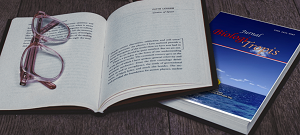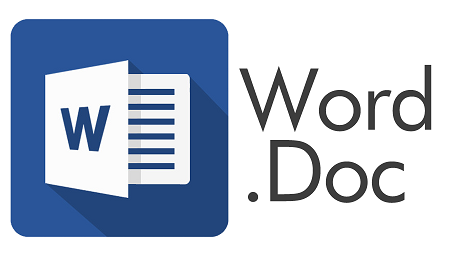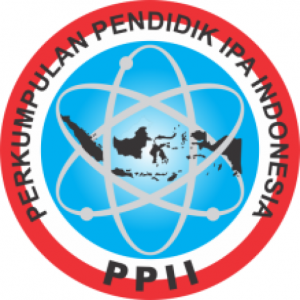Pathophysiology of Cognitive Dysfunction Due to Decompression Sickness in Diver
Authors
Baiq Bunga Citra Pratiwi , Ni Wayan Puspa Wijaya Suryantarini , Wira Satriawan , Lusye Diana Jacob , Herpan Syafii HarahapDOI:
10.29303/jbt.v25i4.10138Published:
2025-10-15Issue:
Vol. 25 No. 4 (2025): Oktober-DesemberKeywords:
cognitive function, decompression sickness, nitrogen bubbleArticles
Downloads
How to Cite
Downloads
Metrics
Abstract
Cognitive impairment can occur due to factors that affect the structural and functional integrity of brain areas that specifically play a role in each cognitive domain. Severe cognitive impairment causes morbidity and mortality. One condition that can lead to complications such as a cognitive impairment is Decompression Sickness (DCS). DCS is an important risk for divers and manifestations of cognitive impairment need to be recognized earlier to prevent progression to a more severe stage. The literature used was collected from the Google Scholar, ScienceDirect, and PubMed databases with restrictions: publication year 2015-2025, Indonesian or English languages, and research with human subjects. The results of the literature review indicate that the pathophysiology of cognitive impairment after onset of DCS is still not clearly understood. The principles that are understood so far include the impact of nitrogen gas bubble circulation in cerebral arteries, extensive brain ischemia, white matter damage, and hyperbaric pressure administration can simultaneously improve cognitive function in patients. It can be concluded that neurological symptoms in DCS can develop into severe cognitive impairment if not recognized and treated immediately. The underlying relationship is mainly related to the impact of nitrogen gas embolism, cerebral ischemia, and extensive damage to cognitive areas of the brain.
References
Coco, M. et al. (2019) ‘Cognitive Deficits and White Matter Alterations in Highly Trained Scuba Divers’,FrontPsychol,10.Available at: https://doi.org/10.3389/fpsyg.2019.02376.
Dardeau, M.R. et al. (2012) ‘The incidence of decompression illness in 10 years of scientific diving’, Diving Hyperb Med, 42(4).
Faiza, Y. and Syafrita, Y. (2020)Faktor-faktor yang mempengaruhi fungsi kognitif pada pasien diabetes melitus tipe 2, Jurnal Human Care, 5(1), pp.319-322. Available at: https://doi.org/10.32883/hcj.v5i1.654.
Fiebelkorn, I.C. and Kastner, S. (2019) ‘Functional Specialization in the Attention Network’, Annu Rev Psychol [Preprint]. Available at: https://doi.org/10.1146/annurev-psych-010418-103429.
Filley, C.M. and Fields, R.D. (2016) ‘White matter and cognition: making the connection’,JNeurophysiol, 116(5). Available at: https://doi.org/10.1152/jn.00221.2016.
Fitri, N.L. et al. (2025) ‘Analisis Faktor yang Berhubungan dengan Gangguan Kognitif pada Lansia’, Malahayati Nursing Journal, 7(3), pp. 1381–1391. Available at: https://doi.org/10.33024/mnj.v7i3.17132.
Fitriasari, E., Untari, N.K.S.D. and Fitra, N.A. (2024) ‘Risk Factors For Decompression Sickness’,Jurnal Multidisiplin Indonesia, 3(2). Available at: https://doi.org/10.58344/jmi.v3i2.1095.
Friederici, A.D. (2011) ‘The Brain Basis of Language Processing: From Structure to Function’, Physiol Rev [Preprint]. Available at: https://doi.org/10.1152/physrev.00006.2011.
Goldman, S., Solanp-Altamirano, J.M. and Ledez, K.M. (2018) ‘Gas-bubble dynamics in the treatment of gas-bubble disease: Merging medicine and math’, in Gas Bubble Dynamics in the Human Body, pp. 251–83.
Husseini, N. El et al. (2023) ‘Cognitive Impairment After Ischemic and Hemorrhagic Stroke: A Scientific Statement From the American Heart Association/American Stroke Association’, Stroke, 54(6). Available at: https://www.ahajournals.org/doi/full/10.1161/STR.0000000000000430.
Kirkman, M.A. et al. (2022) ‘Influences on cognitive outcomes in adults patients with gliomas: A systematic review’, Front Oncol [Preprint].
Kohshi, K. et al. (2021) ‘Decompression Illness in Repetitive Breath-Hold Diving: Why Ischemic Lesions Involve the Brain?’, Front Physiol [Preprint]. Available at: https://doi.org/10.3389/fphys.2021.711850.
Lestari, H. (2023) ‘Gambaran Kejadian Dekompresi pada Penyelam Tim Sar Kota Kendari’, Jurnal Kesehatan dan Keselamatan Kerja Universitas Halu Oleo, 3(4). Available at: https://doi.org/10.37887/jk3-uho.
Liu, Y. et al. (2023) ‘Classification of cognitive impairment in older adults based on brain functional state measurement data via hierarchical clustering analysis’, Frontiers in Aging Neuroscience, 15. Available at: https://doi.org/10.3389/fnagi.2023.1198481.
Ljubkovic, M. et al. (2010) ‘Venous and Arterial Bubbles at Rest after No-Decompression Air Dives’, Medicine and Science in Sports and Exercises, 43(6).
Lövdén, M. et al. (2020) ‘Education and Cognitive Functioning Across the Life Span’, Psychological Science in the Public Interest, 21(1), pp. 6–41. Available at: https://doi.org/10.1177/1529100620920576.
Marcinkowska, A.B. et al. (2021) ‘Impact of Hyperbaric Oxygen Therapy on Cognitive Functions: a Systematic Review’, Neuropsychol Rev, 32(1), pp. 99–126.
Marienau, K.J. and Arguin, P.M. (2013) ‘Diving Medicine’, in Travel Medicine, pp. 373–9.
Mitchell, S. and Gorman, D. (2002) ‘The Pathophysiology of Cerebral Arterial Gas Embolism’, JECT [Preprint].
Mitchell, S.J. (2024) ‘Decompression illness: a comprehensive overview’, Diving Hyperb Med, 54. Available at: https://doi.org/10.28920/dhm54.1.suppl.1-53.
Nindela, R. et al. (2023) ‘Skrining kognitif pada dewasa dan lansia di Kelurahan Gunung Ibul Kota Prabumulih’, Jurnal Pengabdian Masyarakat: Humanity and Medicine, 4(2), pp. 90–105. Available at: https://doi.org/10.32539/hummed.v4l2.126.
Ovsepian, S. V et al. (2018) ‘Amyloid Plaques of Alzheimer’s Disease as Hotspots of Glutamatergic Activity’, Neuroscientist, 25(4). Available at: https://doi.org/10.1177/1073858418791128 .
Purnairawan, Y. (2025) Hubungan Kejadian Hipertensi Dengan Fungsi Kognitif pada Lansia, Jurnal Ilmiah Permas: Jurnal Ilmiah STIKES Kendal, 15(2), pp. 411–416. Available at: http://journal.stikeskendal.ac.id/index.php/PSKM.
Ratcliffe, L.N. et al. (2023) ‘Classification statistics of the Montreal Cognitive Assessment (MoCA): Are we interpreting the MoCA correctly?’, Clinical Neuropsychologist, 37(3), pp. 562–576. Available at: https://doi.org/10.1080/13854046.2022.2086487.
Salehinejad, M.A. et al. (2021) ‘Hot and cold executive functions in the brain: A prefrontal-cingular network’, Brain Neurosci Adv [Preprint]. Available at: https://doi.org/10.1177/23982128211007769.
Sánchez-Villalobos, J.M. et al. (2022) ‘Breath-Hold Diving-Related Decompression Sickness with Brain Involvement: From Neuroimaging to Pathophysiology’, Tomography, 8(3). Available at: https://doi.org/10.3390/tomography8030096.
Savioli, G. et al. (2022) ‘Dysbarism: An Overview of an Unusual Medical Emergency’, Medicina (Kauna), 58(1), p. 104. Available at: https://doi.org/10.3390/medicina58010104.
Sen, Suman and Sen, Sheuli (2021) ‘Therapeutic effects of hyperbaric oxygen: integrated review’, Med Gas Res, 11(1). Available at: https://doi.org/10.4103/2045-9912.310057.
Sridhar, S., Khamaj, A. and Asthana, M.K. (2023) ‘Cognitive neuroscience perspective on memory: overview and summary’, Front Hum Neurosci [Preprint]. Available at: https://doi.org/10.3389/fnhum.2023.1217093.
Stradecki-Cohan, H.M. et al. (2017) ‘Cognitive Deficits after Cerebral Ischemia and Underlying Dysfunctional Plasticity: Potential Targets for Recovery of Cognition’, Journal of Alzheimer’s Disease, 60. Available at: https://doi.org/10.3233/JAD-170057.
Sundal, E. et al. (2022) ‘Long-term neurological sequelae after decompression sickness in retired professional divers’, Journal of Neurological Sciences, 434. Available at: https://doi.org/10.1016/j.jns.2022.120181.
Syalom Lintang Panggayuh, G., Putri Junio, Z. and Aqila Naila Ismail, S. (2019) Penyebab dan Dampak Penurunan Kognitif Pada Kualitas Hidup Lansia, Jurnal Inovasi Daerah. Available at: http://jurnal.magelangkota.go.id.
Vachha, B.A., Massoud, T.F. and Huang, S.Y. (2022) ‘Anatomy of the Cerebral Cortex, Lobes, and Cerebellum’, Neuroimaging Clinics of North America, 32(3). Available at: https://doi.org/10.1016/j.nic.2022.04.008.
Wulandari, E. et al. (2023) Hubungan Kualitas Tidur dengan Fungsi Kognitif Lansia di Puskesmas Muara Kumpe, Jurnal Ilmiah Ners Indonesia. Available at: https://www.onlinejournal.unja.ac.id/JINI.
Overview of an Unusual Medical Emergency’, Medicina (Kauna), 58(1), p. 104. Available at: https://doi.org/10.3390/medicina58010104.
Sen, Suman and Sen, Sheuli (2021) ‘Therapeutic effects of hyperbaric oxygen: integrated review’, Med Gas Res, 11(1). Available at: https://doi.org/10.4103/2045-9912.310057.
Sridhar, S., Khamaj, A. and Asthana, M.K. (2023) ‘Cognitive neuroscience perspective on memory: overview and summary’, Front Hum Neurosci [Preprint]. Available at: https://doi.org/10.3389/fnhum.2023.1217093.
Stradecki-Cohan, H.M. et al. (2017) ‘Cognitive Deficits after Cerebral Ischemia and Underlying Dysfunctional Plasticity: Potential Targets for Recovery of Cognition’, Journal of Alzheimer’s Disease, 60. Available at: https://doi.org/10.3233/JAD-170057.
Sundal, E. et al. (2022) ‘Long-term neurological sequelae after decompression sickness in retired professional divers’, Journal of Neurological Sciences, 434. Available at: https://doi.org/10.1016/j.jns.2022.120181.
Syalom Lintang Panggayuh, G., Putri Junio, Z. and Aqila Naila Ismail, S. (2019) Penyebab dan Dampak Penurunan Kognitif Pada Kualitas Hidup Lansia, Jurnal Inovasi Daerah. Available at: http://jurnal.magelangkota.go.id.
Vachha, B.A., Massoud, T.F. and Huang, S.Y. (2022) ‘Anatomy of the Cerebral Cortex, Lobes, and Cerebellum’, Neuroimaging Clinics of North America, 32(3). Available at: https://doi.org/10.1016/j.nic.2022.04.008.
Wulandari, E. et al. (2023) Hubungan Kualitas Tidur dengan Fungsi Kognitif Lansia di Puskesmas Muara Kumpe, Jurnal Ilmiah Ners Indonesia. Available at: https://www.onlinejournal.unja.ac.id/JINI.
Zhang, J. (2019) Cognitive Functions of the Brain: Perception, Attention and Memory. Available at: https://arxiv.org/abs/1907.02863#:~:text=Brain cognitive functions are the mental processes that,and to relate to the world more effectively.
License
Copyright (c) 2025 Baiq Bunga Citra Pratiwi, Ni Wayan Puspa Wijaya Suryantarini, Wira Satriawan, Lusye Diana Jacob, Herpan Syafii Harahap

This work is licensed under a Creative Commons Attribution 4.0 International License.

Jurnal Biologi Tropis is licensed under a Creative Commons Attribution 4.0 International License.
The copyright of the received article shall be assigned to the author as the owner of the paper. The intended copyright includes the right to publish the article in various forms (including reprints). The journal maintains the publishing rights to the published articles.
Authors are permitted to disseminate published articles by sharing the link/DOI of the article at the journal. Authors are allowed to use their articles for any legal purposes deemed necessary without written permission from the journal with an acknowledgment of initial publication to this journal.


























